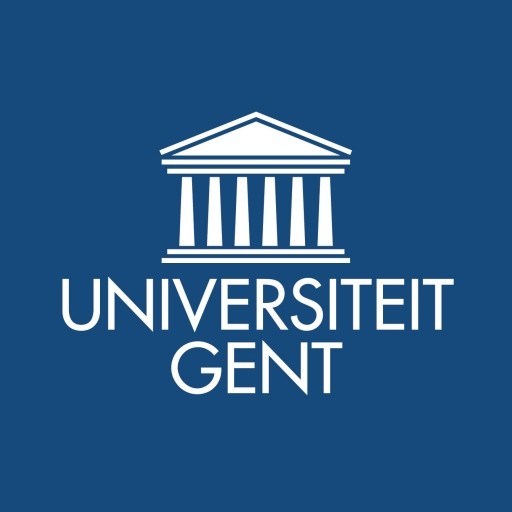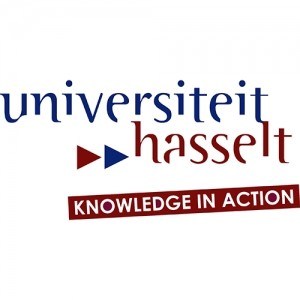Photos of university / #thefoundry_ugent
The Master of Science in Data Analytics at Ghent University is a comprehensive, interdisciplinary program designed to equip students with advanced skills in data analysis, statistical modeling, machine learning, and data management. This program aims to prepare graduates to address complex problems across various sectors such as healthcare, finance, marketing, and public administration by transforming raw data into actionable insights. The curriculum combines theoretical foundations with practical applications, ensuring students are well-versed in the latest tools and techniques in data science. Students will learn to handle large and diverse datasets, develop predictive models, and implement data-driven decision-making strategies. The program emphasizes hands-on experience through real-world projects, internships, and collaborations with industry partners, fostering a strong connection between academic knowledge and professional practice. Courses cover a wide range of topics including algorithms, data visualization, programming in R and Python, statistical inference, and data ethics. In addition, students will have opportunities to specialize in areas such as artificial intelligence, business analytics, or healthcare informatics, depending on their interests and career goals. The program is tailored for recent graduates with a background in mathematics, computer science, engineering, or related fields, as well as for professionals seeking to enhance their data analytics expertise. Graduates of this program will be capable of designing, implementing, and evaluating advanced data analysis solutions, making them highly sought-after in the growing job market for data scientists and analytics specialists. The MSc in Data Analytics at Ghent University is committed to academic excellence and practical relevance, ensuring that graduates are prepared for the evolving demands of the digital age.
General Courses
- Strategic Management
- Environmental Technology
- Human Resources Management [en, nl]
- System Dynamics
- Business Skills [en, nl]
- Business-to-business Marketing
- Managing Service Organisations
- Implementation and Management of ICT within an Organisation
- Innovation and Technology Management
- Business Process Management
- Financing High Tech Entrepreneurial Companies
- High Tech Marketing
- Master's Dissertation
Courses Related to the Main Subject
- Social Media and Web Analytics
- Analytical Customer Relationship Management
- Pricing and Revenue Management
- Predictive and Prescriptive Analytics
- Big Data
Elective Advanced Courses
- Investment Analysis
- Financial Risk Management
- Financial Planning
- Advanced Investment Analysis
- Valuation and Financial Risk Management
- Advanced Production Management
- Total Quality Management
- Decision Making for Business
- Supply Chain Management
- Bayesian Statistics
- Econometrics: Time Series Analysis
- International Business Cases in IT
- Project-based Systems Analysis and Design
- Service Implementation
- Work Placement [nl]
- Artificial Intelligence
- Big Data Science
- Clean Technology
- Discrete Algorithms
- Rational Use of Materials
- Heuristics and Search Methods
- Methods Engineering and Work Measurement
- Information Management [nl]
- Information Technology and Data Processing
- Machine Learning
- Network Modelling and Design
- Project Management
- Quality Engineering and Industrial Statistics
- Queueing Theory
- Simulation of Manufacturing and Service Systems
- Software Architecture
- Software Management
- Total Plant Automation
Elective General Courses
- Economics of Banking
- Economics of Financial Markets
- Advanced Econometrics: Non-linear Methods
- Microeconomics: Decision Theory [nl]
- Monetary Economics
- Insurances [nl]
- Audit
- Management Control
- Taxation
- Advanced Financial Statement Analysis
- Market Research Methods
- Corporate Social Responsibility [nl]
- Ethics, Engineering and Society [nl]
- Health Economics [nl]
- Economic Analysis of Law [nl]
Elective Courses Academic Teacher Education
- The Teacher within School and Society [nl]
- Interaction and Communication in the Classroom [nl]
- Classroom Management and Reflection
- Powerful Learning Environments [nl]
- Psychology of Adolescence
Requirements
- The course is open to students with at least a bachelor's degree
- Reference letters
- A TOEFL-TEST with a minimum score of 90 (internet-based). Test participants should specify the "institution code" 2643 for UGent and 0749 for KULeuven, so that the score can be sent directly to the university.
- An original 'academic test report form' (TRF) from IELTS with a minimum overall band score of 7.0.
- A certificate awarded by the Ghent University Language Centre confirming proficiency in English, CEF-level B2
- Certificate Practical English 5, Upper-Intermediate Academic English or Preparing for an English test, issued by the Ghent University Language Centre.
- Cambridge-ESOL: First certificate in English (FCE)
- Enrollment fee of Ghent University for academic year 2016-2017 is 890 € for EER-students and students from OESO-DAC-list (developing countries), all other students pay an enrollment fee of 5330 €
The financing of the Data Analytics master's degree program at Ghent University is primarily based on a combination of government funding, university resources, and student tuition fees. As a public university in Belgium, Ghent University receives substantial financial support from the Flemish Government, which allocates funds to cover operational costs, infrastructure, and academic staff salaries. This government funding is essential for maintaining the quality of education, supporting research activities, and ensuring the continuous development of the program.
In addition to public funding, the university allocates internal resources to enhance the program’s facilities, purchase up-to-date hardware and software, and promote innovation in teaching methods. The university also relies on tuition fees paid by enrolled students, which constitute a significant portion of the program’s revenue. Tuition fees are set in accordance with regulations established by the Flemish Ministry of Education and are differentiated based on the student’s nationality (EU or non-EU), with EU students paying lower rates compared to non-EU students.
Ghent University offers various scholarship opportunities, grants, and financial aid options to support eligible students in financing their studies. These include university-specific scholarships, government grants, and Erasmus+ programs for international mobility. To attract talented students, the university may also offer waivers or discounts based on academic achievement or financial need, although these are limited and competitive.
Furthermore, the program may receive funding from research grants or industry partnerships that support specific research projects or collaborative initiatives in data analytics and related fields. Such external funding enhances the research component of the program and promotes collaboration with the private sector, which can also benefit students through internships and practical training.
Overall, the financial structure of the Data Analytics master's program at Ghent University is designed to ensure sustainable operations, high-quality education, and opportunities for student financial support, leveraging a mix of governmental, institutional, and private resources.
The Data Analytics program at Ghent University is designed to equip students with the necessary skills and knowledge to analyze complex data sets and extract meaningful insights to support decision-making processes across various industries. The curriculum covers a broad spectrum of disciplines including statistics, computer science, machine learning, data mining, and business intelligence, offering a comprehensive education in data analysis techniques and tools. Students learn to work with large-scale data, develop algorithms, and create predictive models, all within a framework that emphasizes practical applications and real-world problem solving. The program integrates theoretical foundations with hands-on projects, often in collaboration with industry partners, to give students valuable experience in deploying data analytics solutions in real business contexts.
Typically, students gain proficiency in programming languages such as Python and R, essential for data manipulation, analysis, and visualization. They also learn to use advanced analytics software and platforms, including SQL, Tableau, and SAS, to manage and interpret data effectively. The program places a strong emphasis on developing critical thinking and analytical skills, enabling graduates to tackle complex data-driven challenges in various sectors such as health care, finance, marketing, and technology.
Furthermore, Ghent University encourages interdisciplinary learning, allowing students to apply data analytics techniques in fields like economics, engineering, and social sciences. The program also offers optional specializations or electives, allowing students to tailor their studies to their specific interests or career goals. Upon graduation, students are well-prepared to pursue careers as data analysts, data scientists, or analytics consultants, or to continue their education at the postgraduate level. The university's emphasis on research and innovation ensures that students are exposed to the latest developments and trends in data analytics, fostering a strong foundation for lifelong learning and professional growth.



